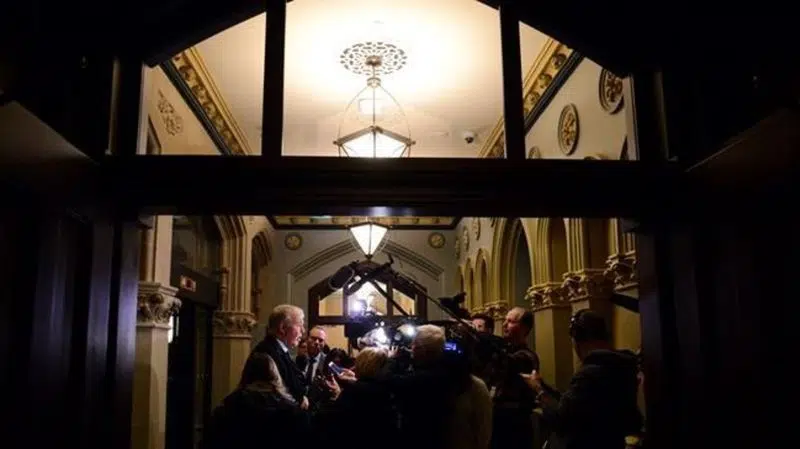
The latest on protests across Canada in support of anti-pipeline demonstrators
Here is the latest news on protests across Canada over a natural gas pipeline project in British Columbia:
B.C.’s indigenous relations minister says the events in Wet’suwet’en territory over the last few weeks do not mark the death of reconciliation, despite what some have said.
Scott Fraser says in a statement posted to Facebook that if anything, this moment must serve as a reminder of how important reconciliation is and why the work must continue.
He says it was “heartbreaking” to have talks with the hereditary chiefs fail earlier this month, but he and his federal counterpart Carolyn Bennett have offered again to meet with the chiefs face-to-face.


